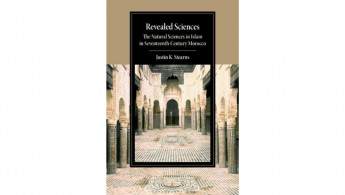Revealed Sciences: The Natural Sciences in Islam in Seventeenth-Century Morocco
“As for what is mentioned about inhaling smoke (siff al-dukhan) burning the chests of the people on the left (ahl al-shimal), there is no proof of this, and if it were true it would also not indicate prohibiting it, for what is a sign of a bad people does not indicate that it should be prohibited,” writes Abu Abdallah Al-Fasi, an Islamic scholar, in 1642, in defence of smoking.
In the 17th and 18th centuries, Morocco underwent a major debate over whether or not inhaling tobacco was medically harmful. Scholars from across the spectrum weighed in with some arguing for it and others arguing against it, both sides were driven by empirical evidence emerging in medicine at the time, but they differed in how they interpreted it.
The importance of evidence-based research was not questioned, but how to understand and apply it was. Morocco was a lively place full of debate in the natural sciences from medicine to astronomy as Justin K. Stearns’s new book Revealed Sciences: The Natural Sciences in Islam in Seventeenth-Century Morocco shows.
Stearns argues that post-classical Morocco should not be viewed as a decline of the natural sciences, but as taking a different path from Europe during the same centuries
But the rise of a powerful myth has prevented historians from understanding and dissecting debates being had in North Africa during the 17th century. This myth also shapes power relations in the world today – and that is the intellectual decline of the Muslim world after the sacking of Baghdad by the Mongols in 1258.
Stearns writes, “In the context of increasing European colonisation of the Middle East [in the 19th century], many European Orientalists and traditionally educated scholars in the Middle East came to view the intellectual landscape of the region in the pre-nineteenth century as largely static, and in stark contrast to an earlier period of intellectual fertility.”
The earlier period Stearns is referring to here is the so-called ‘Golden Age’ of the Abbasid era, sometimes called the classical period, which is remembered as a time of great enlightenment and as a precursor to the Scientific Revolution in 17th century Europe.
|
The Golden Age is a myth invented by Orientalists to justify the subjugation of the region, in rather paternalistic language they are saying, you were once great, but you have since fallen behind, and through us, you will be great again.
Thinkers from the MENA region and Islamic scholars accepted this myth and formulated a discourse around it. Thus scholars from both sides chose to ignore the philosophical and scientific works produced after the classical period, and when engaging with science from the ‘Golden Age’ only picking stuff that seems to fit what we think of science today as being.
As is starting to happen in the history of science, Stearns is pushing back against this essentialism and the existence of this book is part of this effort.
Far from static, Morocco was a hotbed of debate and Revealed Sciences takes us into that world.
“Astronomy and timekeeping were comparatively popular subjects of study in seventeenth-century Morocco,” because of its connection to prayer and fasting, special attention to improving the accuracy of astrological timekeeping made up a huge bulk of natural science inquiries.
Mohammad Al-Rudani (1627-1683) was one of Morocco’s most famous astronomers and mathematicians, turning his mind to some of the most vexing problems, he was described by a contemporary, “He was skilled in using astrolabes and other timekeeping devices such as quadrants (al-arba), dials (al-dawa’ir), al-ansaf, and clocks (al-makanat).”
While drawing upon existing astronomical works, Al-Rudani was famed for his ability to think independently and dissect problems. He produced treaties on everything from disagreements over the using of dating in the lunar calendar, examining how other calendars work from Rome to Persia, the issue of establishing longitude and latitude – which he produces a chart measuring it from the Canary Islands to Central Asia as well as the equator – to sunrises and sunsets.
The reception of such works by religious and legal scholars varied as many of the scientists producing the works were themselves religious scholars. “The tension between science and religion has often been characterised as either one between reason and revelation, or between empirical evidence and scriptural authority. Such characterisations are insufficient and misleading. Instead, we find that, when challenging the authority of the natural sciences, Muslim legal scholars... take issue with how empirical evidence should be interpreted.”
If the powerful myth of the Muslim decline is successfully overturned and new questions asked about the post-Abbasid period, it will be in no small part due to Revealed Sciences
Stearns exhibits a scholarly mastery over the subject of natural sciences in seventeenth-century Morocco with each section illuminating a dark spot in the history of science.
Rather than trying to find what looks like science from our vantage point, the New York University Abu Dhabi associate professor tries to reconstruct how seventeenth-century peoples thought about and practised science.
Taking inspiration from philosopher Thomas Kuhn, who offered a sustained critique of modern science and the idea of it having a single direction or goal, Stearns argues post-classical Morocco should not be viewed as a decline of the natural sciences, but as taking a different path from Europe during the same centuries, “distinct, but no less rational or curious.”
If the powerful myth of the Muslim decline is successfully overturned and new questions asked about the post-Abbasid period, it will be in no small part due to Revealed Sciences.
Usman Butt is a multimedia television researcher, filmmaker and writer based in London. Usman read International Relations and Arabic Language at the University of Westminster and completed a Master of Arts in Palestine Studies at the University of Exeter.
Follow him on Twitter: @TheUsmanButt



